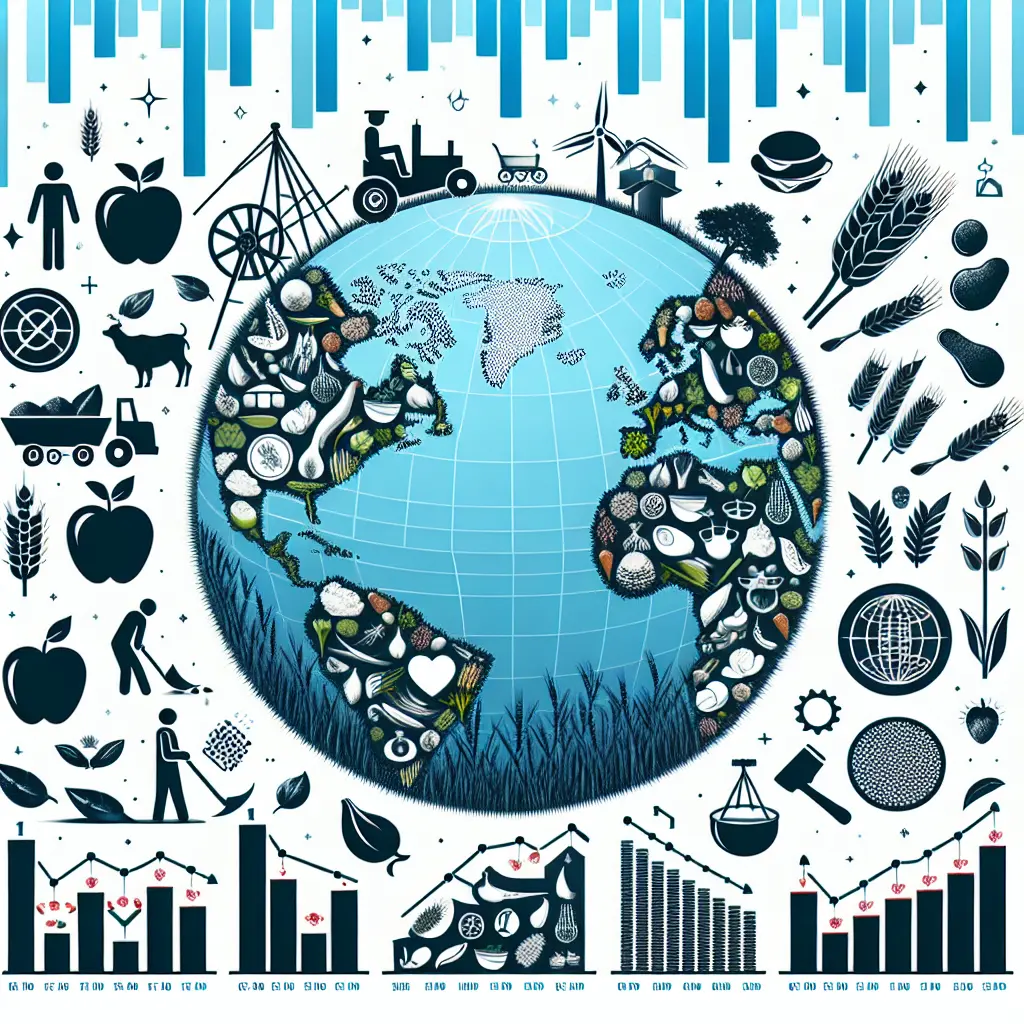
As the global population continues to climb toward an estimated 9.7 billion by 2050, the issue of global food security intensifies. The increasing demand for food necessitates a transformation in our food systems, and many are turning their attention to veganism as a potential solution. In this discussion, we will explore the far-reaching impact of veganism on global food security, considering environmental, nutritional, and agricultural dimensions.
The Environmental Impact of Veganism
Veganism, which excludes all animal products, is often lauded for its minimal environmental footprint. The production of plant-based foods generally requires fewer resources such as water and land compared to animal-based products. For instance, producing 1kg of beef consumes approximately 15,000 liters of water, whereas producing 1kg of wheat uses about 1,500 liters. By reducing the demand for animal products, vegan diets can significantly decrease water usage in agriculture, contributing to more sustainable water resource management.
Moreover, land use tied to veganism is considerably less intensive. Animal agriculture is a primary driver of deforestation and habitat destruction. Transitioning to a plant-based diet could help free up millions of acres of land, potentially restoring it for natural biodiversity or reforestation efforts which are critical in carbon sequestration.
Carbon Footprint and Vegan Diets
The carbon footprint of vegan diets is notably lower. Livestock farming is responsible for nearly 14.5% of global greenhouse gas emissions according to the FAO. Switching to a vegan diet could lower an individual’s carbon footprint from food by up to 73%. This shift could play a crucial role in mitigating climate change, highlighting the profound environmental impact of veganism.
Veganism and Agriculture
Adopting veganism can lead to more efficient use of agricultural resources. Plant-based diets use fewer crop calories for feed and more for direct human consumption, which could theoretically boost global food availability and reduce food scarcity. For example, it is estimated that if global crop calories were used exclusively for human consumption, an additional 4 billion people could be fed.
Nutritional Security Through Veganism
Nutritional security is another critical aspect of global food security. A well-planned vegan diet can provide all necessary nutrients for health, as evidenced by positions from dietetic associations worldwide. Moreover, plant-based diets are rich in fiber, vitamins, and minerals, contributing to overall health and reducing the risk of chronic diseases such as type 2 diabetes and heart disease.
Global Hunger and Veganism
The role of veganism in addressing global hunger is significant. By improving the efficiency of food systems through decreased reliance on animal agriculture, more food can be made available to feed the hungry. This is particularly pertinent in regions where food scarcity is compounded by economic and climatic factors.
Challenges and Considerations
Despite the benefits, transitioning to a vegan diet globally is fraught with challenges. Cultural preferences, economic constraints, and nutritional misinformation can hinder adoption. Additionally, there is the issue of ensuring balanced nutrient intake through plant-based sources, particularly for nutrients like vitamin B12, iron, and omega-3 fatty acids.
To address these challenges, educational initiatives and policy reforms are essential to encourage sustainable eating practices and make plant-based options more accessible and affordable.
Recent News and Updates
Recent discussions around wellness and diet shed light on sustainable eating habits. For instance, a 78-year-old doctor has attributed his health and longevity to following principles that align closely with plant-based diets. This anecdote underscores how sustainable dietary choices can support not only environmental sustainability but also personal health (Source: Healthline).
In another vein, discussions about resource management in other sectors can inspire similar transformations in food systems. RFK Jr.'s suggestion of using wellness farms for therapeutic purposes could be reimagined to incorporate sustainable agricultural practices that support both mental and physical health (Source: Wellness Magazine).
Conclusion
The potential of veganism to impact global food security positively is immense. By reducing the strain on environmental resources like land and water, lowering carbon emissions, and making food production more efficient, a global shift toward plant-based eating could address several pressing food security challenges.
As we continue to explore this complex topic, it's clear that an integrated approach involving education, policy change, and cultural adaptation is necessary to harness the full benefits of veganism for global food security.
Thank you for joining this exploration into how our dietary choices can lead to a more sustainable and secure world. Remember, every meal is a choice that can contribute to a healthier planet and society.
Lucas Sheridan